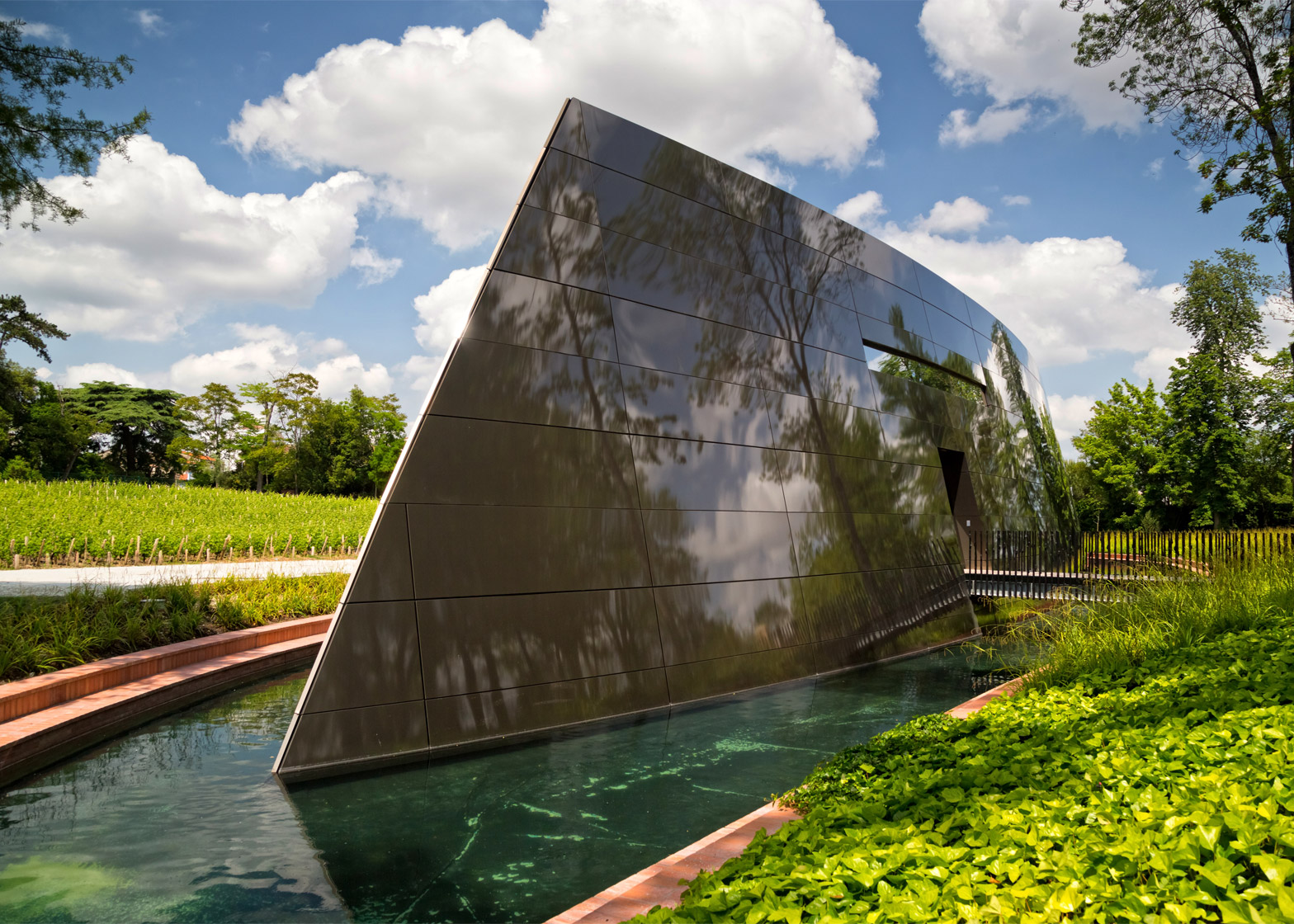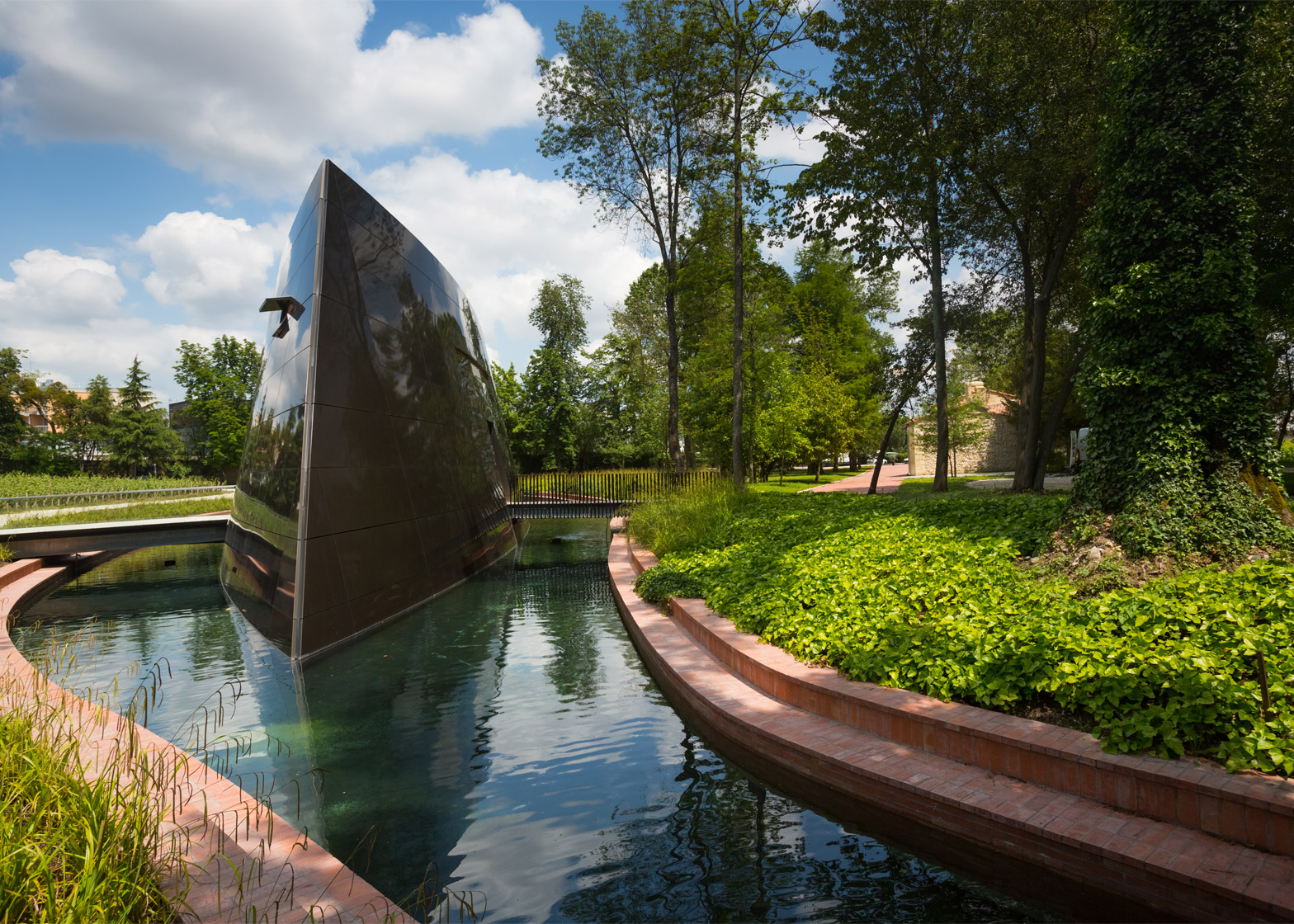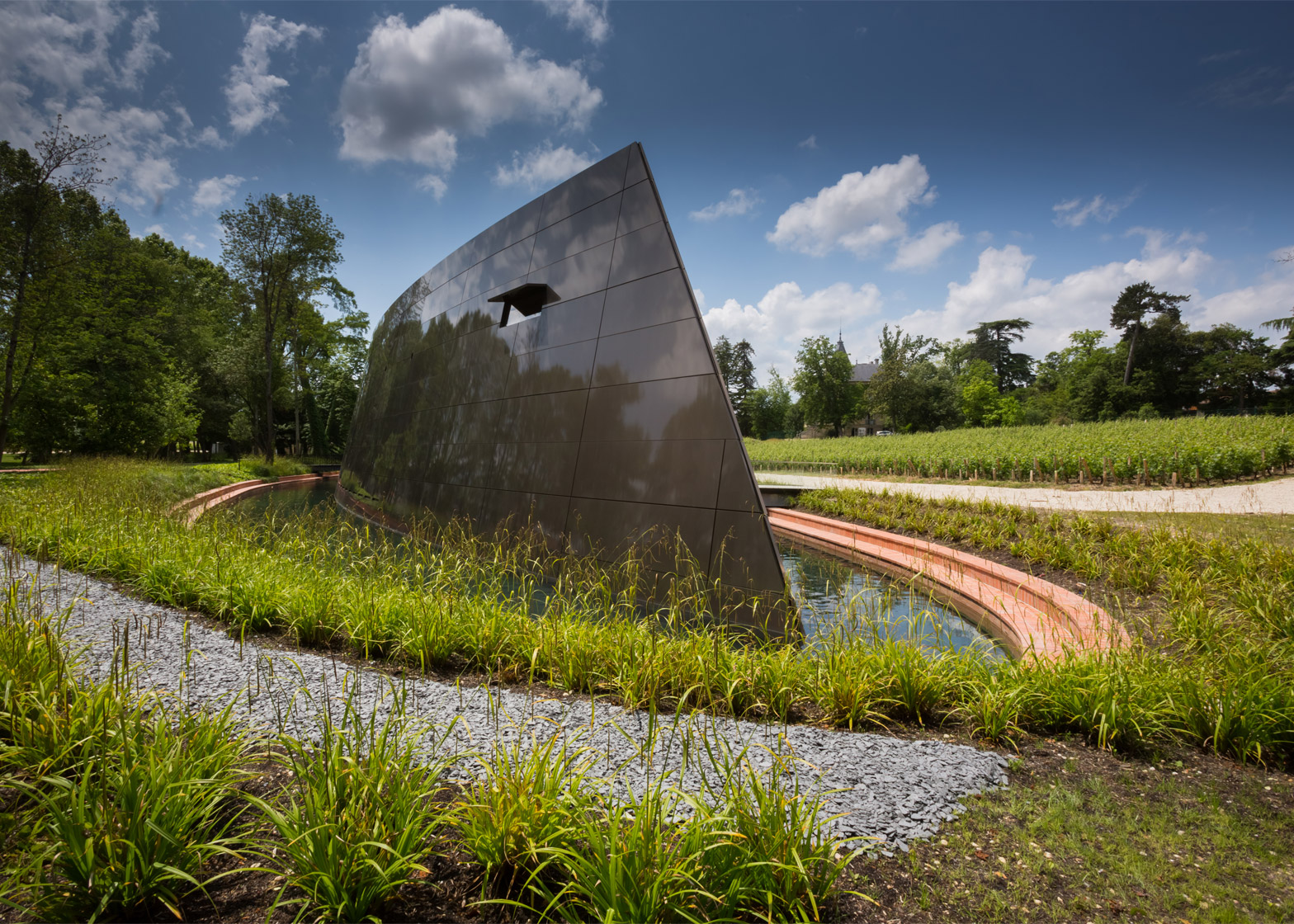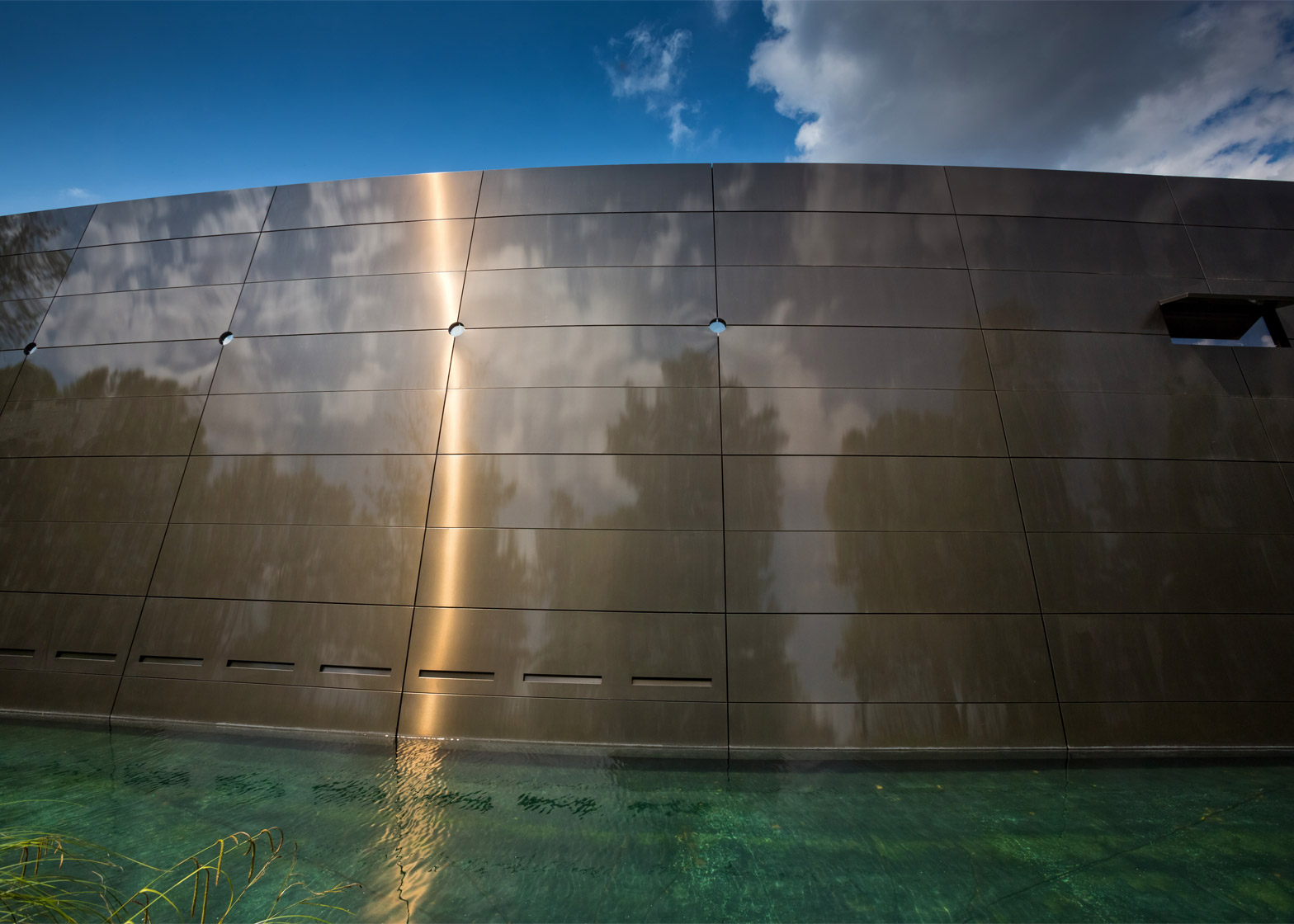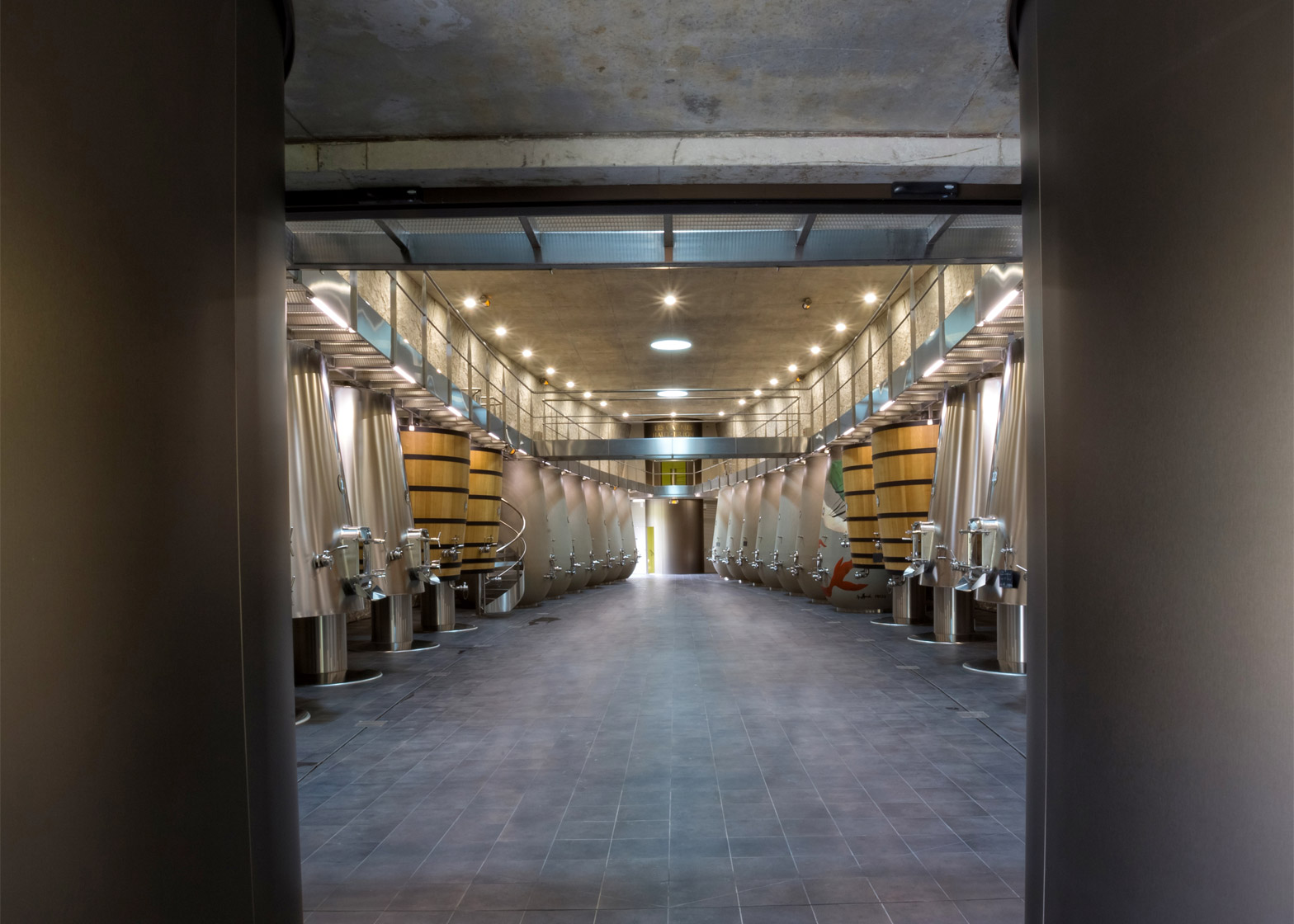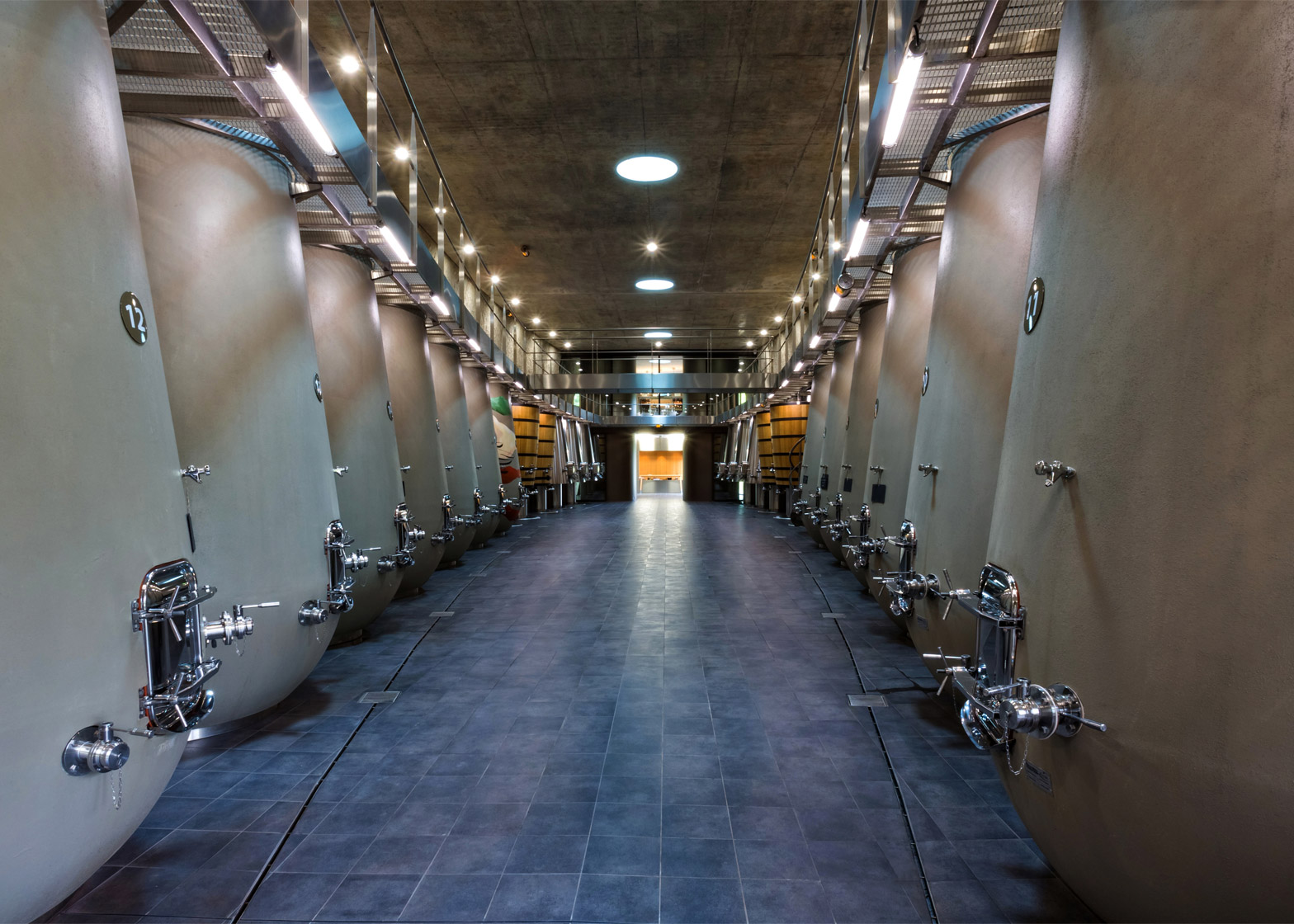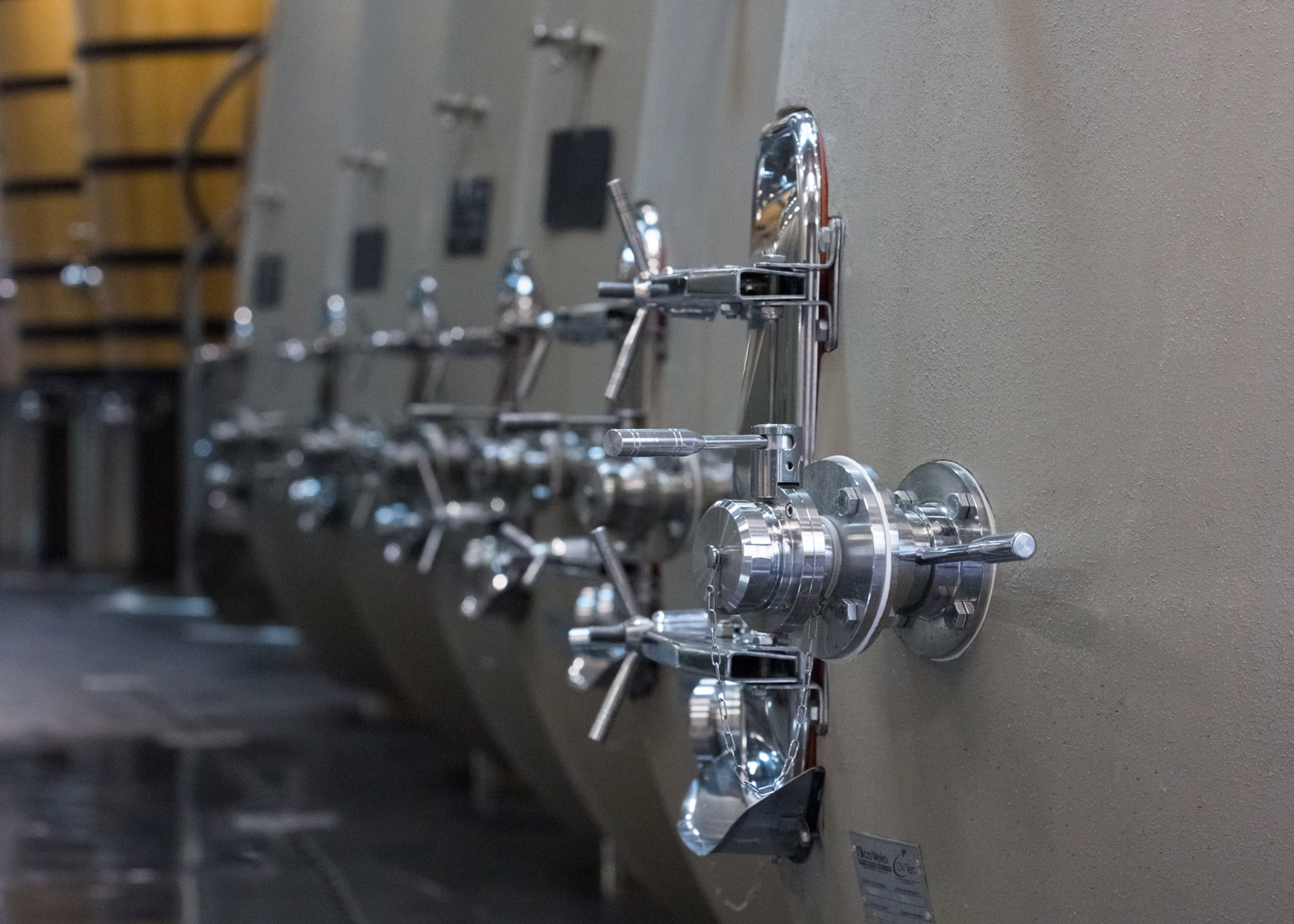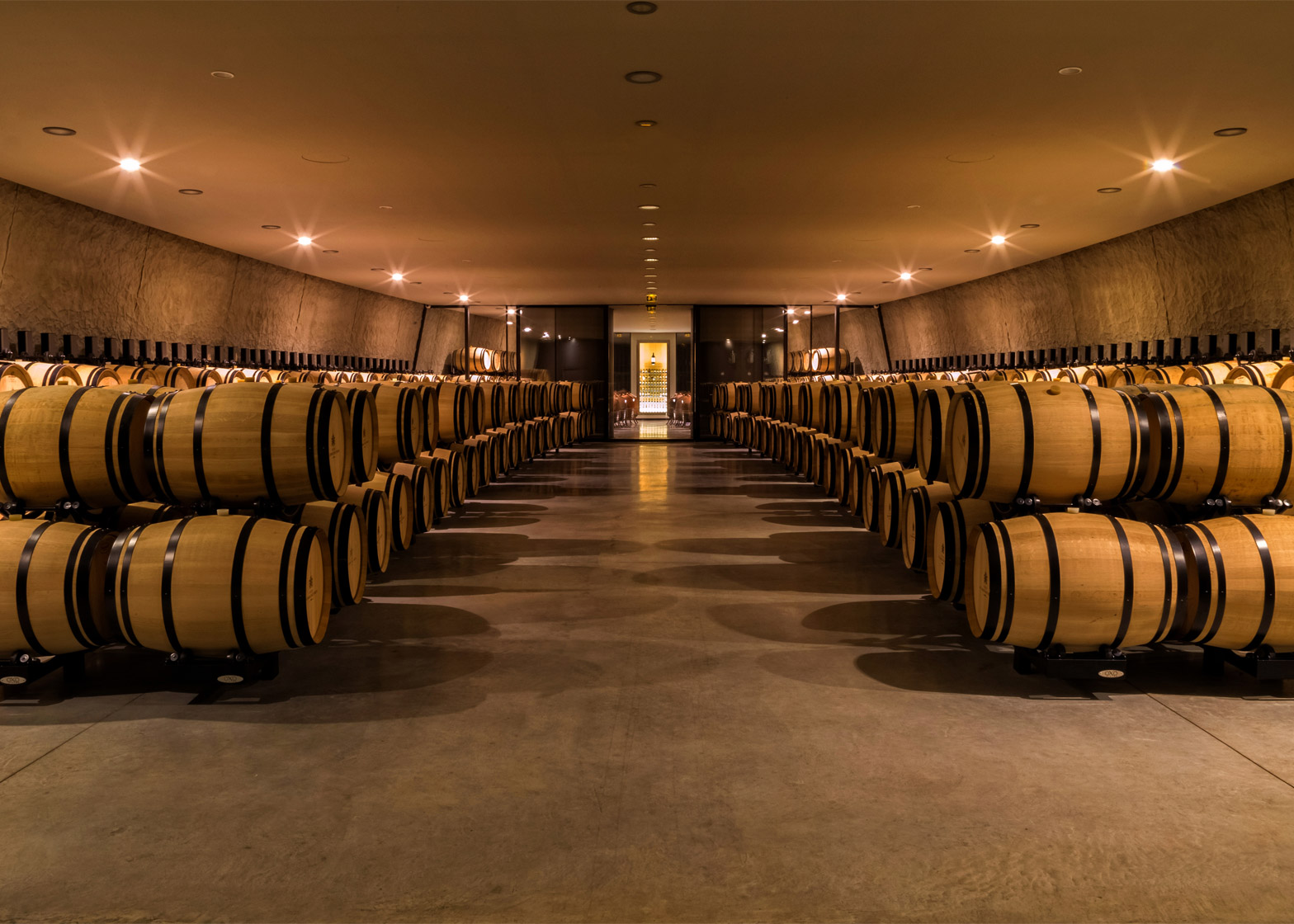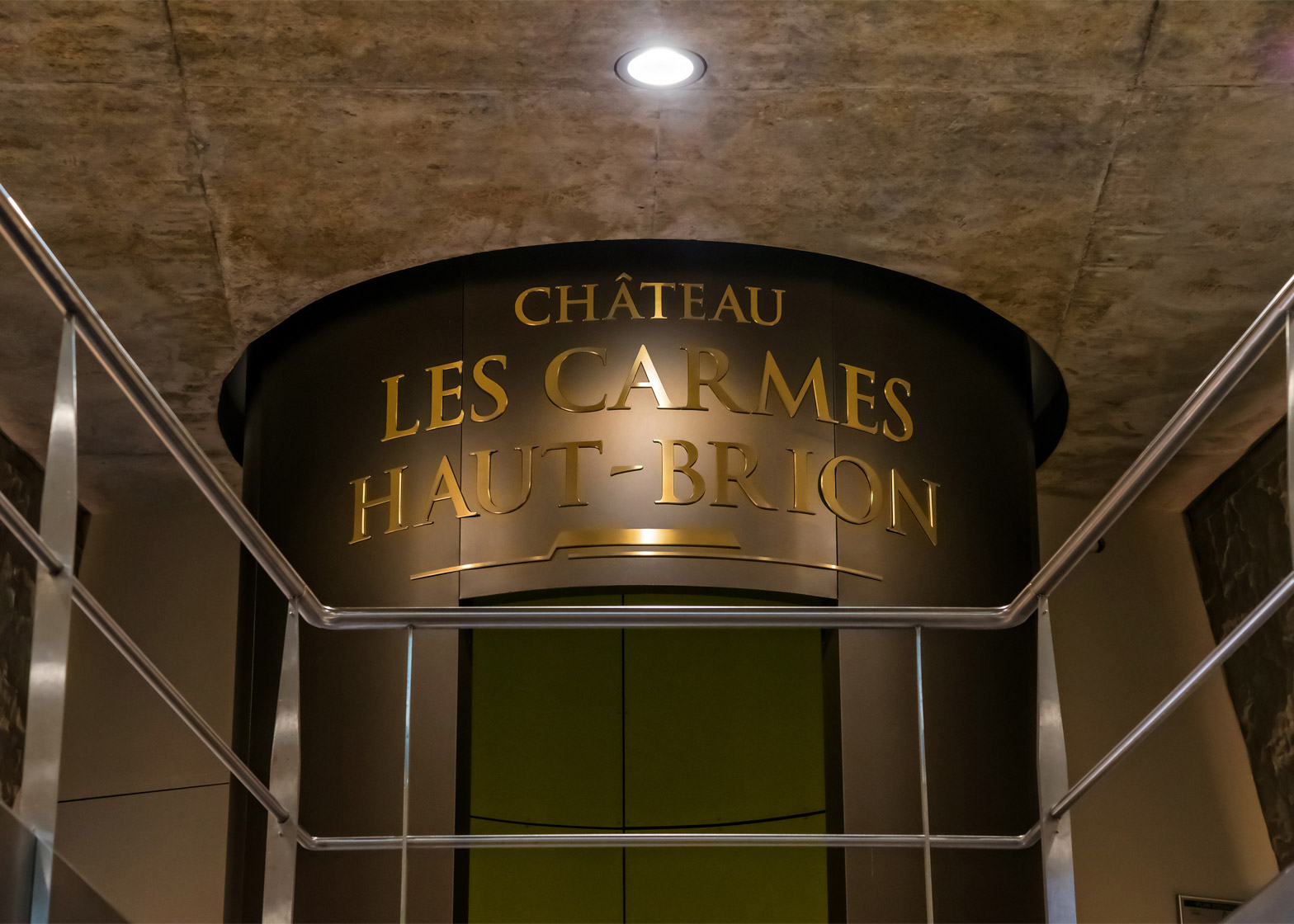French designer Philippe Starck has teamed up with architect pal Luc Arsène-Henry to create a cellar for a Bordeaux wine estate, designed to to look like a "raw metal blade plunged in the terroir" (+ slideshow).
Starck and LA/HAT Architectes co-founder Arsène-Henry were approached by Château les Carmes Haut-Brion to create the new cellar for its Bordeaux estate, which is located in the Pessac-Léognan wine region.
The estate is located just outside Bordeaux's city centre, so one of the biggest concerns was ensuring the structure can offer optimised, environmentally stable conditions for wine storage.
To overcome this, the designers developed a structure that is partly submerged in a manmade lake. It contains a new vat house, a barrel cellar, a series of reception rooms and a large roof terrace.
The structure features a streamlined form that is clad externally with stainless steel panels. It is this that led to its comparison with a giant knife blade.
"As a blade fallen from the sky in a superb copse of tall trees on either side, flanked by vine-covered slopes, the new cellar distributes the four levels of various wine-making and reception areas," said Arsène-Henry.
"Free from any architectural gesture, it symbolises the qualities of the wine that is made there: finesse and elegance."
"[The wine's] home had to be evocative, a minimum, an institution, a reflection," added Starck.
"The wonder of Château les Carmes Haut-Brion deserved this consistency, I hope we did not prove unworthy."
Château les Carmes Haut-Brion shares its name with its signature red, although it also produces a second wine, called Le Clos des Carmes. Since 2010, the estate has been owned by businessman Patrice Pichet.
Completed in time for the 2015 harvest, the new wine cellar contains three storeys – one submerged underwater and two above ground.
The hidden lower level contains the barrel cellar, with room for storing up to 300 wooden barrels. This space is largely protected against changes in air temperature and humidity.
On the level above, a vat room holds rows of large wine containers, ranging in material from wood to steel and concrete, to suit the the Château's different grape varieties and soil types.
A tasting room on the top floor offers a view down over the vats from above. It also leads up to the roof terrace, where visitors are invited to look out over the vineyards.
"Above all, we wanted to make this cellar an efficient tool," said Arsène-Henry.
Starck is best known for designing interiors, furniture and products, although he has completed a series of architectural projects, including a collection of prefabricated, low-energy homes and a cultural centre in Bilbao.
Arsène-Henry leads LA/HAT with co-founder Alain Triaud. The firm has previously designed a number of wine cellars, across France and also in Porto.

